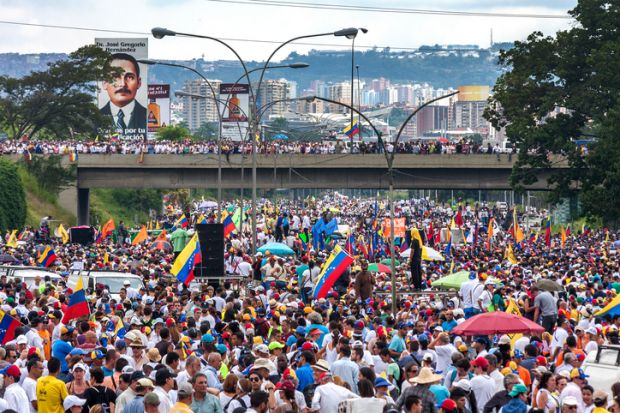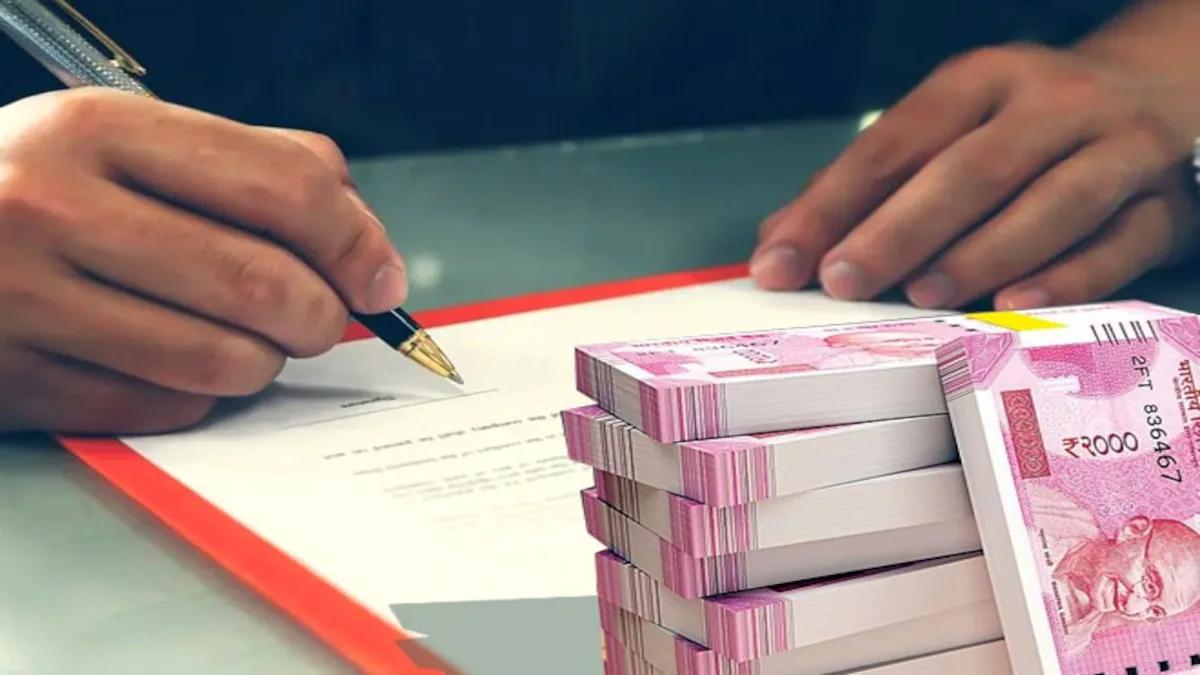
Academics and students are warning of a major crisis in Venezuelan higher education as the country slips deeper into political chaos.
Problems of inadequate funding, low salaries and limited access to journals are fuelling a brain drain of scholars right across Latin America, according to recent reports. But sector leaders say that, at a time of constant public protest against the government of President Nicolás Maduro, and even helicopter attacks on government buildings, the situation in Venezuela is in a class of its own.
Claudio Bifano, a professor at the Central University of Venezuela and former president of the Venezuelan Academy of Science, believes that the country’s universities are suffering from “the most severe crisis in the past 50 years”. Government policies have focused on producing large numbers of graduates, he said, without regard to standards, and on “train[ing] the professionals that the revolution supposedly needs for its political purposes”.
While the government has opened a number of new universities in its own ideological image, the traditional autonomous institutions “suffer severe financial restrictions and legal constraints imposed by people who do not recognise the importance of research and higher education”, said Professor Bifano, who added that private colleges are “also legally harassed by the government”.
Amid “uncontrolled violence”, Professor Bifano continued, academics in Venezuela work for “probably the lowest [salaries] in Latin America” and find it “increasingly difficult to do research of reasonable quality” because of factors such as “the deterioration of all sorts of infrastructure for research” and “the cost of laboratory equipment and reagents”. It is small wonder, he said, that many “very good teachers and scientists [seek] to emigrate to practically any country that may offer them better living and working conditions”.
Political unrest in Venezuela is being fuelled by the poor performance of the country’s economy, which is leading to severe shortages of medicine and food, as well as to increasing lawlessness. Mr Maduro was re-elected in 2013 on a platform of using income from Venezuela’s natural resources to reduce inequality, but falling oil prices have forced the curtailment of social programmes.
Rafael Moreno, who is now doing a master’s in nanomaterials at the University of Bristol, was until last year an undergraduate in Venezuela, where his “generation knows only shortages and cuts”. The current crisis, in his view, has been a long time coming. He remembers how his “university stopped paying for access to different journals” in 2008-09 and notes that “academic productivity has been in clear decline from the mid-2000s”. Professors, who “would see their alumni get better salaries as soon as they graduate”, “need more than one job to survive, while also praying that no one in their families falls ill”.
Although “many universities in the country have been in an intermittent state of strikes for years”, Mr Moreno added, this has now come to a head. His home town University of Carabobo, in Valencia, is “commonly stopped in its daily activities by the face-covered troublemakers known as capuchas”.
“When the university is not on strike, these gangs with clear political affiliations – promoting government intervention in the university – stop the university’s activities by means of violence,” Mr Moreno said.
An equally gloomy picture is provided by Benjamin Scharifker, rector of the private Metropolitan University in Caracas.
Lack of access to foreign currency, a consequence of tight state controls, he said, means that “maintaining or buying equipment, materials or reagents for laboratories, including vehicles for transportation, is practically impossible”. The problems are amplified by inadequate levels of funding, which result in “nearly all resources in public and private universities [being] spent on salaries, with little or nothing left for maintenance, renovations [and] new facilities”.
University leaders are also constrained, explained Professor Scharifker, by the fact that “opening new undergraduate and graduate programmes requires government authorisation. No new programmes have been authorised in private universities for a decade, and very few in public universities not under the direct control of the government.”
Professor Scharifker is unimpressed by the “parallel system of universities directly managed by the government, [which] operate in old facilities, such as buildings seized by the government from oil companies, and do not meet standards either in teaching or research”.
On his own campus, daily protests are met with “continuous repression by police and the military”, all of which takes its “toll in loss of lives, injuries and arbitrary detention of students”. In addition, there are many incidents of theft, students are often “beaten and deprived of their mobile phones or laptop computers” and universities have been “forced to close night classes”. Given such episodes, Professor Scharifker said, it is hardly surprising that many students abandon their degrees “out of fear”.
[“Source-timeshighereducation”]
















